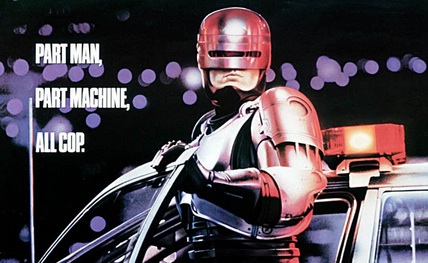In addition to the promise of flying cars and jetpacks, science fiction has taught us that we should have artificial intelligence by now. Sadly, the best we can do is a virtual 13-year-old that was able to fool a number of high-profile researchers (and Robert Llewellyn who played a robot on Red Dwarf) in the Turing Test. Where are our virtual assistants with superhuman powers of discernment? Where are our emotional machines? Where are our smart robots?
First, let’s remember that there is probably a thinking machine somewhere that is calling in drone strikes like Skynet between chess games with bored researchers and whose existence is far above our pay grade. In fact, there could be true AI out there, somewhere, that has organized itself in a way that is imperceptible to our weak brains. For our purposes, however, these things are still sci-fi. We also know of systems that exhibit “intelligence lite” – the Google Car, NPCs in games, autonomous flocking drones, and smart rovers that can travel from Point A to Point B without tipping over. Heck, even Siri is sort of intelligent if you interact with her in the strict Noh theatre that is modern voice interaction.
So where are our artificially intelligent jetpack robot friends? Futurist Ray Kurzweil believes we’ll have human-like machines by 2029 and we’ll have a machine that is far more intelligent than our species by 2045. Again, our definition of “intelligent” is absolutely imperative here. Intelligence, if that hive mind called Wikipedia is to believed, is “defined in many different ways such as in terms of one’s capacity for logic, abstract thought, understanding, self-awareness, communication, learning, emotional knowledge, memory, planning, creativity and problem solving.” It can be said that logic, communication, learning, memory, planning, and problem solving are already licked. It’s just the more creative endeavors that are still unattainable.
After all, AI is supposed to be “the study and design of intelligent agents,” which is far from “a smart robotic dog that can aid us and comfort us in a dystopian hellscape.” But, if you accept that AI is the design of intelligent agents, we might be pretty close to something that resembles true intelligence, albeit thinly spread. In short, all of the parts are there, they’re just not clumping properly. The flocculent, I suppose, will have to be a super-powered computer that can bring these intelligent agents together in one place.
Ultimately, the real measure of intelligence isn’t the ability to converse with humans convincingly. I would argue that the ability to move through the world and do meaningful, unsupervised using both insight and experience is the real definition of a useful intelligence and this can happen online or in meatspace.
A Google Car isn’t smart, it’s just an NPC in a digital model of Mountain View that can avoid other players. A Google Car that pull up to an accident and deploy worker robots to cut passengers out of a wreck while managing traffic, calling in EMTs, and corralling onlookers is far more meaningful and could, on a very basic level, be considered an AI. After all, this sort of behavior mimics that actual experiential intelligence exhibited by a police officer at the scene of an accident. Unlike the police officer, however, no one wants to date and marry a highway patrol bot – yet.
Humans are great at adaptation. Perhaps our understanding of intelligence will also adapt. As it stands it’s a fascinating time to be alive – machines can beat the Turing Test, robots that can read emotion, and systems that can replace call center employees. Taken separately, each of these are as intelligent as a cockroach. Brought together, you could have a fairly convincing experience with an artificial being.
No one would say these robots will be imbued with a soul, but with enough compute power and enough suspended disbelief, we might be able to will a soul into these new machines.
